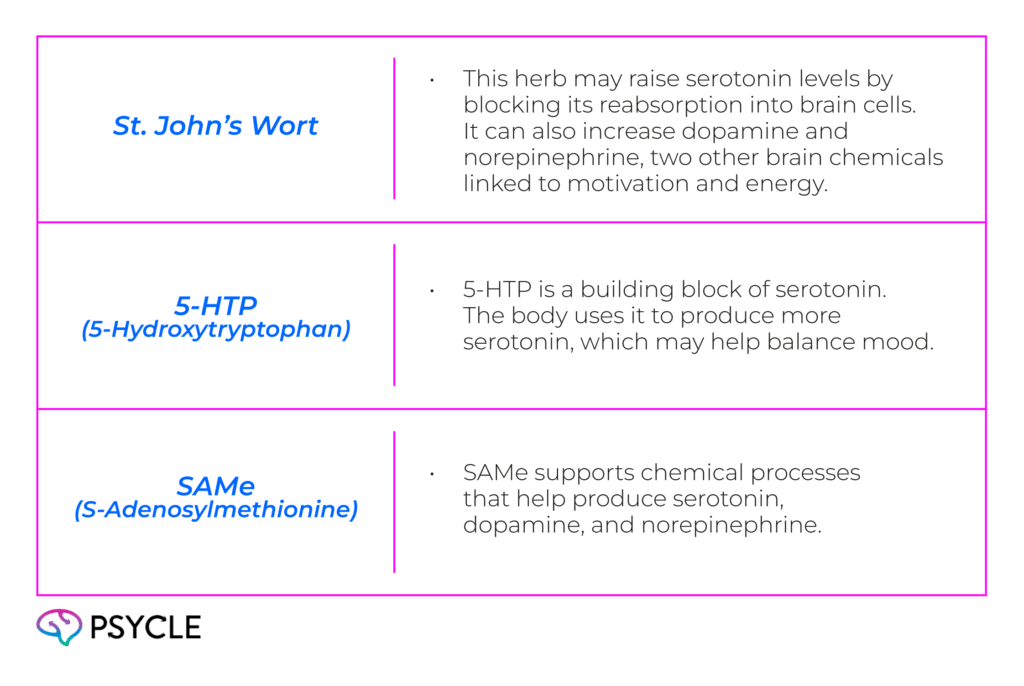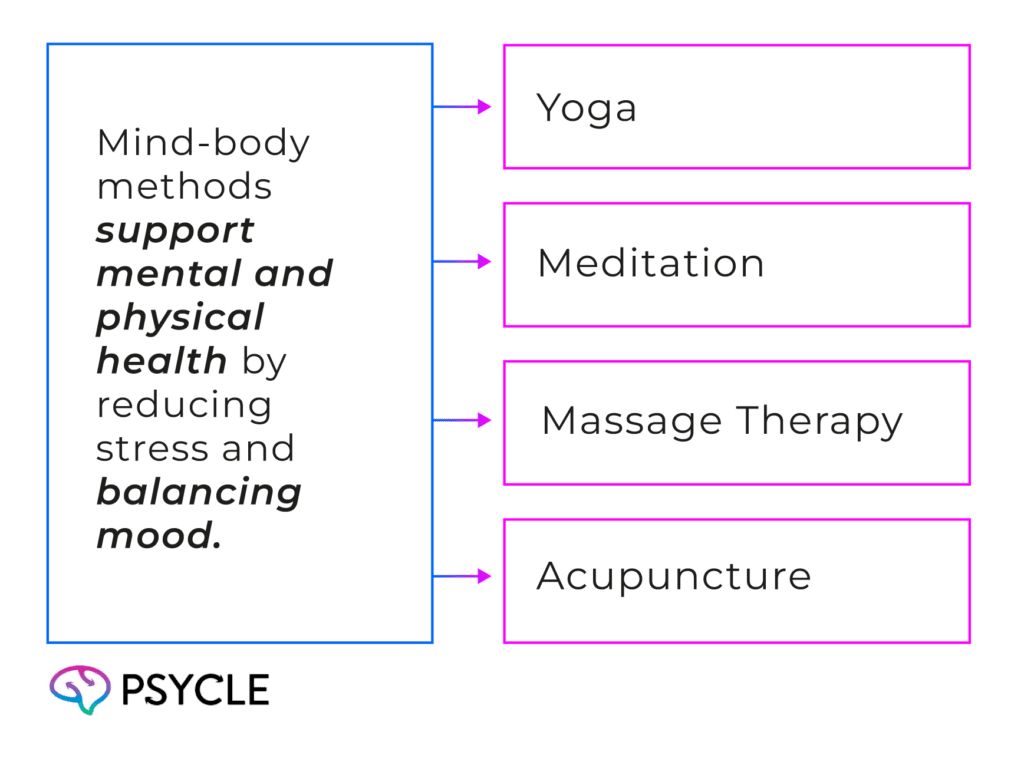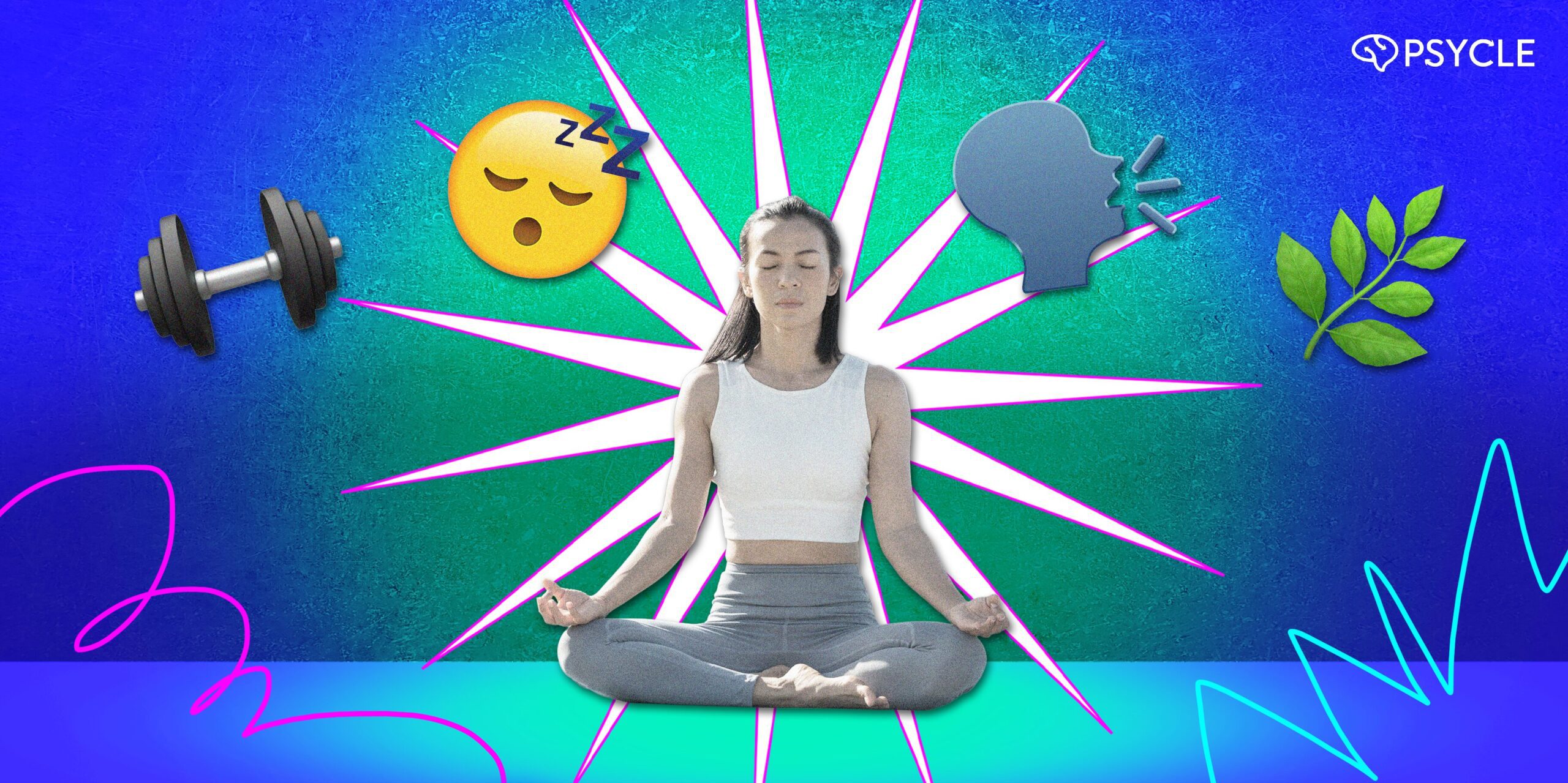Depression affects millions of people worldwide, and while medication can be an effective tool, many individuals seek natural, whole-person approaches to healing. In this article, we’ll discuss holistic treatments for depression and how to support emotional, physical, and mental health through these non-pharmaceutical treatment options.
Key Takeaways
- Holistic therapies approach depression by treating the whole person, not just symptoms, offering alternatives or complements to medication.
- Talk therapies, like CBT and MBCT, help reframe negative thinking and build healthier coping strategies.
- Natural supplements, such as St. John’s Wort and 5-HTP, may support mood but should be used cautiously under medical supervision.
- Mind-body practices, including yoga, meditation, massage, and acupuncture, can reduce stress and improve emotional regulation.
- Psychedelic therapies are an emerging holistic treatment for depression, but currently, only ketamine is available throughout the U.S.
- Lifestyle factors like diet, sleep, social connection, time in nature, and exercise play a powerful role in holistic depression recovery.
What Are Holistic Treatments for Depression?
Holistic remedies support well-being by addressing the whole self, including body, mind, and emotions. Unlike standard antidepressants, they aim to address the root causes of illness and all aspects of daily living rather than just reducing symptoms.
There are many reasons you might consider holistic care for managing depression. Some people use these therapies alongside medication to enhance recovery and personal growth. Others choose holistic options instead of medication to avoid side effects like weight gain, sleep problems, low sex drive, or emotional numbness. Many also prefer natural approaches that feel more personal.
Talk Therapies for Depression
Talk therapy is a pillar of depression treatment, and can support recovery by helping people change perspectives, get out of negative thinking cycles, and build healthier routines and coping strategies. Common types include:
- Cognitive Behavioral Therapy (CBT) teaches people how to change negative thoughts and behaviours. It helps people understand their patterns and encourages new skills and habits to manage stress and emotions.
- Psychoanalytic Therapy: Psychoanalytic therapy helps people explore how past experiences, especially from childhood, shape current thoughts, feelings, and behaviors. It focuses on uncovering unconscious patterns and emotions through open conversation with a trained therapist.
More alternative, but highly effective therapies include:
- Mindfulness-Based Cognitive Therapy (MBCT): MBCT combines traditional CBT with mindfulness training. It helps people learn to notice thoughts without reacting to them and remain calm in times of stress.
- Creative Arts Therapies: Drawing, music, and drama give people ways to process feelings when words are hard to find. These therapies reduce tension and help explore thoughts through creative actions.
- Ecotherapy: Time outdoors supports mental clarity and reduces stress. Activities like walking in nature, planting a garden, or group cleanups can improve someone’s sense of connection and calm.
Herbal and Natural Supplements That Support Depression Relief
Natural supplements come from plants or nutrients already in the body. They may help improve depression by increasing overall brain health and affecting chemical messengers implicated in the condition.
Depression is often linked to low levels of serotonin, a chemical messenger that helps regulate mood. Some supplements may support mood by increasing serotonin activity in the brain. These include:

It’s important to note that these supplements can interact with medications, including antidepressants and birth control, and may not be safe for everyone. They can also cause side effects, especially in people with certain health conditions. Always talk with a healthcare provider before trying any of them.
Other supplements support overall brain health and functioning, helping to restore and prevent damage associated with stress and depression. These include things like fish oil, B vitamins, and zinc.
Mind-Body Techniques to Improve Mood

Mind-body methods support both mental and physical health. These practices can reduce stress and help balance your mood.
Yoga: Combines physical poses, breathing, and focus. It helps stretch tight muscles, release physical tension, and calm the nervous system. Regular yoga practice may lower cortisol (a stress hormone), improving sleep, mood, and energy.
Meditation: Meditation helps train someone’s attention. It helps people notice thoughts without judgment and stay in the moment, rather than getting stuck in anxious or negative thought loops. Daily practice may reduce anxiety, support emotional control, and strengthen focus.
Massage Therapy: Massage helps relax tense muscles and improves blood flow. It may reduce stress chemicals like cortisol and increase feel-good chemicals like dopamine and serotonin. Many people report better sleep and less anxiety after a massage.
Acupuncture: Acupuncture is a traditional Chinese practice that involves placing very thin needles into specific points on the body. It aims to balance the flow of energy, known as qi, and support the body’s natural healing processes. For depression, acupuncture may help by stimulating the nervous system, reducing stress hormones, and increasing the release of mood-regulating chemicals. Some people report feeling calmer and more emotionally balanced after regular sessions.
Engage in Physical Exercise for Mental Health
Exercise supports brain function and mood. Many studies link regular exercise to a lower risk of depression and show that symptoms often improve when people with depression begin to exercise. In a review of 218 studies, researchers found that “exercise is an effective treatment” for depression. Activities like walking or jogging, yoga, and strength training were especially helpful, particularly when done at higher intensity.
Starting a routine can feel challenging, but even small amounts of daily movement make a difference. Choosing an activity you enjoy makes it easier to stick with. Yoga or bodyweight exercises like calisthenics are easy to do at home, especially in the morning. Group classes or team sports add a social element, which is also an essential part of depression recovery.
Psychedelic-Assisted Therapy for Treatment-Resistant Depression
Psychedelic-assisted therapy is an emerging area of mental health care that combines the use of psychoactive substances with guided therapy. It aims to help people explore difficult emotions, shift thought patterns, and create lasting emotional changes. This approach is often used for treatment-resistant depression (TRD), when other therapies or medications haven’t worked.
Psilocybin: Psilocybin is the active ingredient in certain mushrooms. In therapy, it’s used under professional supervision to help people process emotions and shift negative thought patterns. Research shows it may reduce depression symptoms after one or two sessions. Psilocybin remains illegal in most parts of the U.S., except Oregon, Colorado, and soon to be New Mexico.
MDMA: MDMA is being tested mainly for PTSD, but it may also help with depression. In therapy, it can lower fear and boost emotional connection, making it easier to work through difficult feelings. MDMA is not yet legally approved outside of clinical trials or special programs.
Ketamine: Ketamine is the only psychedelic legally available across the U.S. for depression. It’s mainly used in medical settings as a nasal spray or IV infusion, but can be accessed as a form of psychedelic therapy in more holistic centers. Ketamine works quickly and may help people with severe or treatment-resistant depression.
Maintain a Healthy Lifestyle to Support Holistic Healing
Daily habits shape how you feel. Healthy routines support mood and brain health, and, importantly, are an act of self-love.
Diet: Eat meals with whole grains, leafy greens, fish, nuts, and beans. These foods have vitamins, minerals, and healthy fats that feed your brain. Limit sugar and processed food, which can affect mood swings.
Sleep: Sleep helps your brain reset. Aim for 7–9 hours per night. Keep a bedtime, reduce screen time before bed, and avoid caffeine in the evening.
Socialising: Loneliness is a major risk factor for depression. Spend time with people you love, even in small ways like a quick call or a shared meal. Consider attending a wellness event like a sound bath or cacao ceremony to connect with people on a similar path to greater wellness.
Outdoor time: Being in nature can ease stress and lift your mood. Aim for short daily walks, time in a park, or even sitting near natural light. Gardening or outdoor hobbies can also give structure and calm to your day.
Relaxing: Build small breaks into your routine to slow down. Try gentle activities like deep breathing, stretching, reading, or listening to calming music. These moments can lower stress and help you feel more balanced.
Lean on supportive relationships: Let friends or family know how you’re feeling. You don’t need to explain everything—staying in touch or accepting help with small tasks can make a difference. Support doesn’t have to be emotional; practical help matters too.
Reflect on your work-life balance: Your job can affect mood and stress. Notice if work leaves you drained or disconnected. Speak with your employer about small adjustments, take regular breaks, or explore career paths that align better with your well-being.
FAQs
Can I Use Holistic Treatments for Depression Without Taking Medication?
Yes, many people manage their depression through holistic methods alone, especially if symptoms are mild to moderate. However, it’s essential to consult with a mental health professional to ensure your treatment plan is safe and effective. In some cases, a combination of holistic approaches and medication may be most beneficial.
What is the Best Holistic Therapy to Try First for Depression?
There’s no one-size-fits-all answer, and different holistic modalities will suit different people. If you’re new to recovery, reaching out to loved ones may be the first point of call. Talk therapy is a tried-and-tested treatment that may help you more easily adopt other lifestyle changes, such as meditation and regular exercise.
Sources
- https://www.health.harvard.edu/depression/can-a-dietary-supplement-help-ease-your-depression
- https://www.health.harvard.edu/blog/diet-and-depression-2018022213309
- https://www.bmj.com/content/384/bmj-2023-075847
- https://pubmed.ncbi.nlm.nih.gov/36209780/

